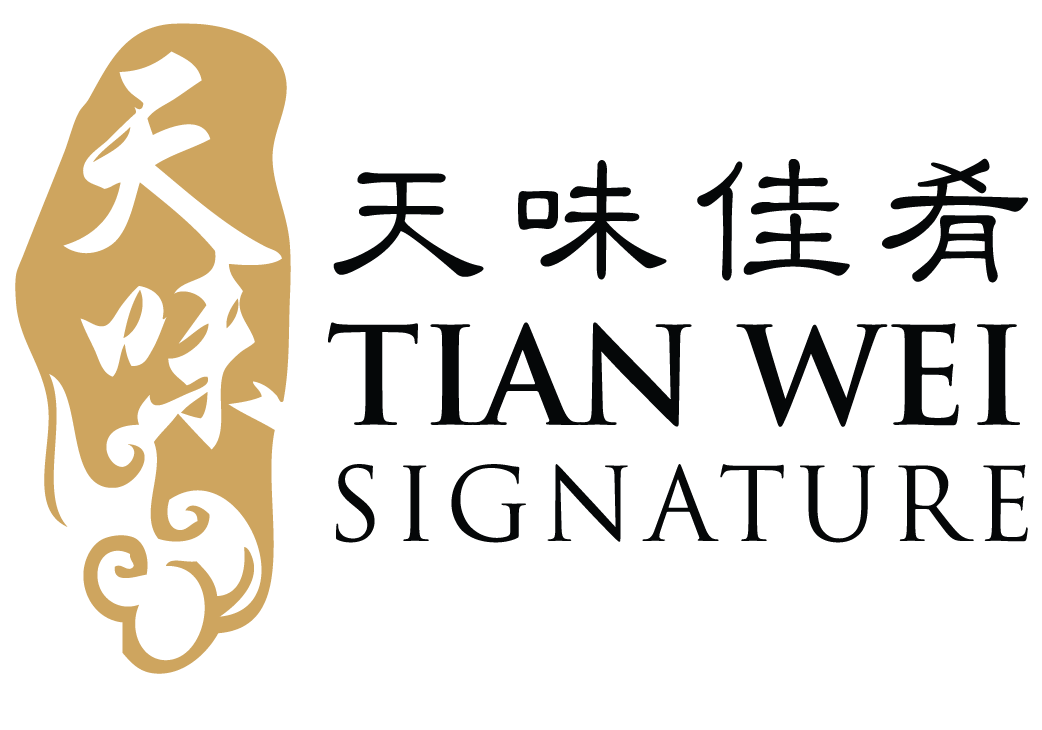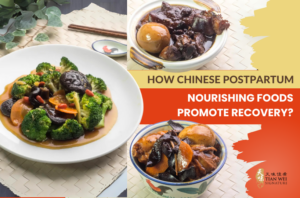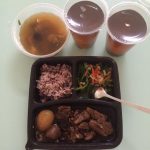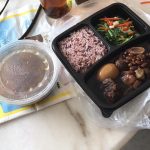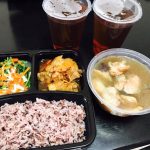81 Tagore Lane, TAG A, #01-11 Singapore 787502 ♦ Reservation : +65 6727 5599
Foods to Avoid VS Foods to Have When You Are Pregnant
Pregnancy is a remarkable milestone in every woman’s life, and it is also a period when you need to take great care of your body more than ever! Getting enough nutrition should be your utmost priority as your body will undergo various biological changes. Regarding your diet during pregnancy, there are foods you should refrain from and foods you are encouraged to consume. We understand how tough it can be for you to keep tabs on the right food. Therefore, we have listed what to eat and what not to eat when pregnant for you.
First and foremost, let’s start with the food you should avoid. It is important to identify which foods could affect your well-being during pregnancy to plan your meals. So which foods should you be wary of?
Foods to Avoid
Certain Types of Cheese
Cheese is a popular ingredient that we can spot in food, snacks, or even drinks, and they are well-loved by many. They are creamy, tender, a little nutty and sometimes salty.
While dairies are good for you during pregnancy, there are some cheeses you might want to avoid at this point. Why?
Some cheeses such as Roquefort, Feta, Gorgonzola, Brie and Camembert are commonly found unpasteurised and thus may contain Listeria. Wait, why is this such a big deal? Well, it is because pregnant women are 10 times more likely to be infected with Listeria, as the Centers for Disease Control and Prevention in the United States mentioned.
Listeriosis can cause miscarriage, low birth weight, premature labour and even infant death. Avoiding these cheeses, for the time being, would be a safer choice.
Mercury-Rich Fishes
One of the foods you should generally avoid during pregnancy is mercury-rich fish. Mercury is harmless when consumed in low quantities. However, it does pose serious harm when taken in large sums.
Excessive intake of mercury could cause severe spinal, brain and kidney damage. The damage is not limited to only you but also includes your unborn baby!
But then again, there is a lot of fish in the ocean, so which one is a no-no to you? For instance, you should avoid consuming sharks, king mackerel, tilefish, swordfish and even the infamous tuna! Meanwhile, canned tuna that uses skipjack is lower in mercury and generally safe for mommies to consume.
Raw or Undercooked Eggs and Meats
When preparing meat or eggs-based meals, it is worth remembering that they should be prepared well and cooked thoroughly. Traces of blood on the meat can be a host for toxoplasmosis, a parasite that resides in raw meat, while undercooked eggs may contain salmonella.
This parasite is dangerous to pregnant mothers as it can cause stillborn and damage the baby’s nervous system. Thus making raw or undercooked eggs and meat a pregnancy food to avoid. All in all, well-done meat is well done indeed!
It is best to avoid having undercooked eggs in your meals during pregnancy as much as possible.
Here are some examples of food that uses raw or lightly cooked eggs that you may not have likely thought of:
- Homemade caesar salad dressing
- Homemade mayonnaise
- Tiramisu
- Homemade ice-cream
- Eggs Benedict
- Homemade Hollandaise sauce
Alcohol During Pregnancy
During pregnancy, it is wise for you to avoid alcohol-based food and drinks altogether as it affects your baby’s brain development. Plus, consuming alcohol would increase the risk of fetal alcohol spectrum disorder, higher risk of miscarriage, stillbirth, and lifelong physical, behavioural and intellectual disabilities. You might want to put those good drinks off for now.
Now that we have covered what foods to avoid when pregnant. Let’s go over to the tasty, healthy, delicious foods you can have!
Foods You Should Get
Dairy Foods
Dairy products are beneficial for pregnant mothers. They are a great source of proteins and calcium, nutrients which are important for the growth of your unborn child as they promote better bone growth, tissue growth and development of muscles.
Furthermore, a glass of milk can also be an effective source of amino acids, fatty acids and protein. These elements are vital for the formation of the baby’s development and growth
Besides, dairy products are available in abundance, and they are easily accessible to everyone! Some dairy products include pasteurised milk, casein, whey, yoghurt and pasteurised cheese.
Vitamin D Rich Foods
- Shiitake mushrooms
- Salmon
- Mackerel
- Egg Yolks
- Fortified margarine
- Fortified soy milk/ soy products
- Fortified milk
- Fortified cereals
Vitamin D helps calcium regulate bone health for both mother and baby. In a recent study done in Singapore, low maternal vitamin D status was associated with poorer sleep quality at mid-pregnancy.
Other research found that low vitamin D status during pregnancy is associated with a higher risk of Autism Spectrum Disorder, higher risk of ADHD symptoms, higher risk of Multiple Sclerosis and lower peak bone mass in children at 20 years old, leading to a higher risk of fracture.
Emerging evidence also states that there may be a link between vitamin D deficiency and an increased risk of allergic diseases.
Legumes
It might not be your cup of tea, but legumes are great for your health, especially when pregnant. What are the upsides to adding legumes to your diet, you may ask?
Firstly, legumes are home to much plant-based fibre, protein, iron, and calcium and are a great source of folate! Folate is an important nutrient for you and the baby as it encourages protection from neural tube defects such as spina bifida and other life-threatening conditions.
Some common legumes that you can find in our local grocery store are peas, kidney beans, chickpeas, peanuts and soybeans, mung beans, adzuki beans, yellow lentils and black beans. You can easily add these to your meals, for example:
- Mungbean/ adzuki beans are commonly cooked into a desert
- Kidney beans can be cooked with stewed beef
- Soybeans and black beans can be added to your soup
- Chickpeas and peanuts can be steamed or roasted and eaten by themselves as a healthy snack
- Peas and yellow lentils can be easily added to our staples to add colour and flavour
Frozen vegetables
You may find it weird, but frozen vegetables like broccoli, carrots, corn or kale can be a good option. You can easily use carrots, corn or peas to add colour to your meals. Nutritionally it’s the same with fresh vegetables. Best of all, frozen vegetables are often already pre-cut too! All you need to do is heat it, and it’s good to go!
Fruits make for a tasty and healthy treat, but that is not all! Fruits are a rich source of antioxidants, it keeps you hydrated and promotes better digestion as well (constipation is a normal occasion during pregnancy, so you might want to stock up on these berries). They are rich in flavour yet still count for a very low calorie!
Moreover, fruits help prevent cell damage and help absorb iron, making them a superfood for pregnant mommies! You can also have them as snacks or a healthy dessert alternative.
Remember that you only stick to 2 servings of fruits per day as recommended by Singapore Health Promotion Board.
If you are interested in turning your choice of fruits into yummy beverages or healthy smoothies, you might want to give MumChecked a try! You’ll be able to find the baby or mommy-related products that will make your daily routine a hassle-free experience.
Minced lean meat
Minced meat like pork, beef, and chicken is something you can consider as they are easier to prepare, marinate and cook faster yet still provide flexibility. Minced meat is still a great source of protein and Vitamin B (s). Minced meat can be served with tofu, thrown into your bolognese pasta or lasagna, Thai stir-fried minced pork with basil and many more!
Fish
Fishes are great for your health. They are juicy, tasty and, most importantly, easily accessible! Fishes are known to be a great source of Omega3-DHA. It helps with the development of your baby’s brain, eyes and nervous system. Plus, consuming fish would ensure a healthy birth weight and lower the risk of preterm labour.
Tuna may be something most mothers would avoid because tuna has been said to be of high mercury. Many may have misunderstood that only albacore or yellowfin tuna are high in mercury. Skipjack tuna is low in mercury yet still a great source of Omega 3-DHA and protein for mummies! So just look out for canned skipjack or canned tuna labelled as “light”. You can have them once to twice a week safely! You can make sandwiches or add them to your poke bowl at home.
Eggs
Apart from minced meat, you can also consider other easy-cooking proteins- eggs! These proteins can be used easily in any dish with minimal to zero preparation or marination. You can easily add them to your stir-fried noodles or rice, broths, noodle soups, or even prepare them as the primary protein dish. These options are not only good sources of protein, but it is also the main source of choline which is important for brain development in babies!
Extra Tips For Foods To Eat During Your First Trimester
Food Cravings
While most agree that cravings present themselves during the first trimester, doctors don’t know precisely why this is a thing. They attribute it to possibilities like compensating for the additional bodily requirement to produce more blood, your body wanting comfort foods, etc. The most logical explanation is the probability of some nutritional deficiency.
However, most of the studies find that many of the foods craved by pregnant women are sweet, high-fat foods and convenience foods that are nutritionally dense. Such foods may impact excessive pregnancy weight gain, which may lead to other complications in pregnancy, such as a higher risk of gestational diabetes.
Though, we can’t say that some of the things we’ve read online about what pregnant mothers craved could fit reasonably within the definition of “Comfort foods”. Let’s get something out of the way – pica, the wanting to eat inedible things, is not something you want to indulge in at this stage. One we found online craved to eat chalk, while another mother we interestingly craved to eat soap. No, that’s not a typo, not soup…soap. There was also one that chewed on Kleenex tissue paper too! Do let your Doctor know when this happens. Non-edible objects can harm you and your baby as they may contain chemicals, lead metals, or so that may affect your baby’s brain development or your health.
Thus, some foods or dietary tips you could do to combat this are:
- Practising regular meal timings and a balanced diet to minimise cravings.
- Seek help from doctors if you have unreasonable food cravings for non-edible objects.
Nausea & Vomiting
Let’s go to the other end where you can’t quite eat and feel like throwing up everything you eat.
There’s no one right answer for this, as every mama will have specific aversions and inclinations to food at this stage. What we can give, however, is some tips to help alleviate some of that, hopefully.
Some of the foods or dietary tips you could do to combat this are:
- Ginger tea
- Sipping on cold water or ice chips instead of regular room-temperature water
- Taking small and frequent meals throughout the day
- Protein load in the morning or whenever you feel less nauseated
- Plain bland toast or crackers may be helpful if you are particularly hypersensitive to smells.
Fatigue
Many mothers feel exhausted during the first trimester due to the change in hormones which may lead to morning sickness, which affects appetite, resulting in irregular meal intakes. Irregular energy intake would mean that there is less energy to expand. Suppose symptoms of morning sickness are not managed. In that case, frequent vomiting without adequate rehydration can cause dehydration and an imbalance of electrolytes in the body, thus causing a mother to be more lightheaded and fatigued. Other possible reasons for extreme fatigue could also be due to iron deficiency anaemia. Thus, if needed, it is important to review iron intake in diet or supplements.
Some foods or dietary tips you could do to combat this are:
- Have iron-rich foods from green leafy vegetables, lentils, and beans with vitamin C-rich foods like broccoli, tomatoes and bell peppers. This will help with iron absorption into the body.
- Have iron-rich foods from red meat like beef, mutton or pork more often throughout the week. Iron from these sources is haem iron which is more bioavailable and easily absorbed into the body.
Constipation
Some women may be more prone to constipation than others, even during pre-pregnancy. This symptom may worsen during pregnancy due to the hormones that relax and slow down bowel movements. This can be very uncomfortable for women and may lead to other complications like compaction in the intestine, which can be life-threatening if left untreated. Although laxatives are an option offered to some mothers by doctors, many mothers want to avoid medications as much as possible and would prefer managing them naturally through the diet.
Thus, some foods or dietary tips you could do to combat this are:
- Ensuring adequate hydration of 2.5L of fluids per day
- Staying active throughout pregnancy with moderate intensity. Physical activities as simple as walking help to engage core muscles which help to regulate bowel movements
- Taking in adequate fibre intake from fruits and vegetables daily. The Singapore Health Promotion Board recommends at least 2 servings of fruits and 2 servings of vegetables per day.
In a nutshell, while you might not be able to indulge yourself as you did pre-pregnancy, it is worth keeping in mind that there are tasty yet healthy options available around you. After all, your health is your most prized possession, and a healthy you is the best blessing your baby and your family can have.
